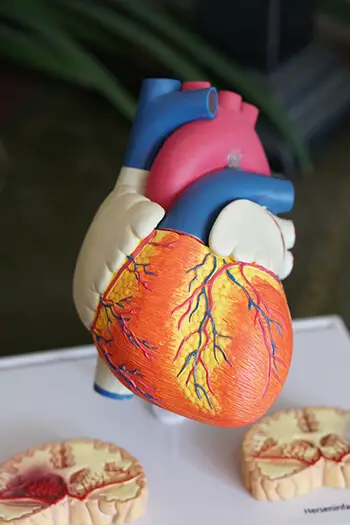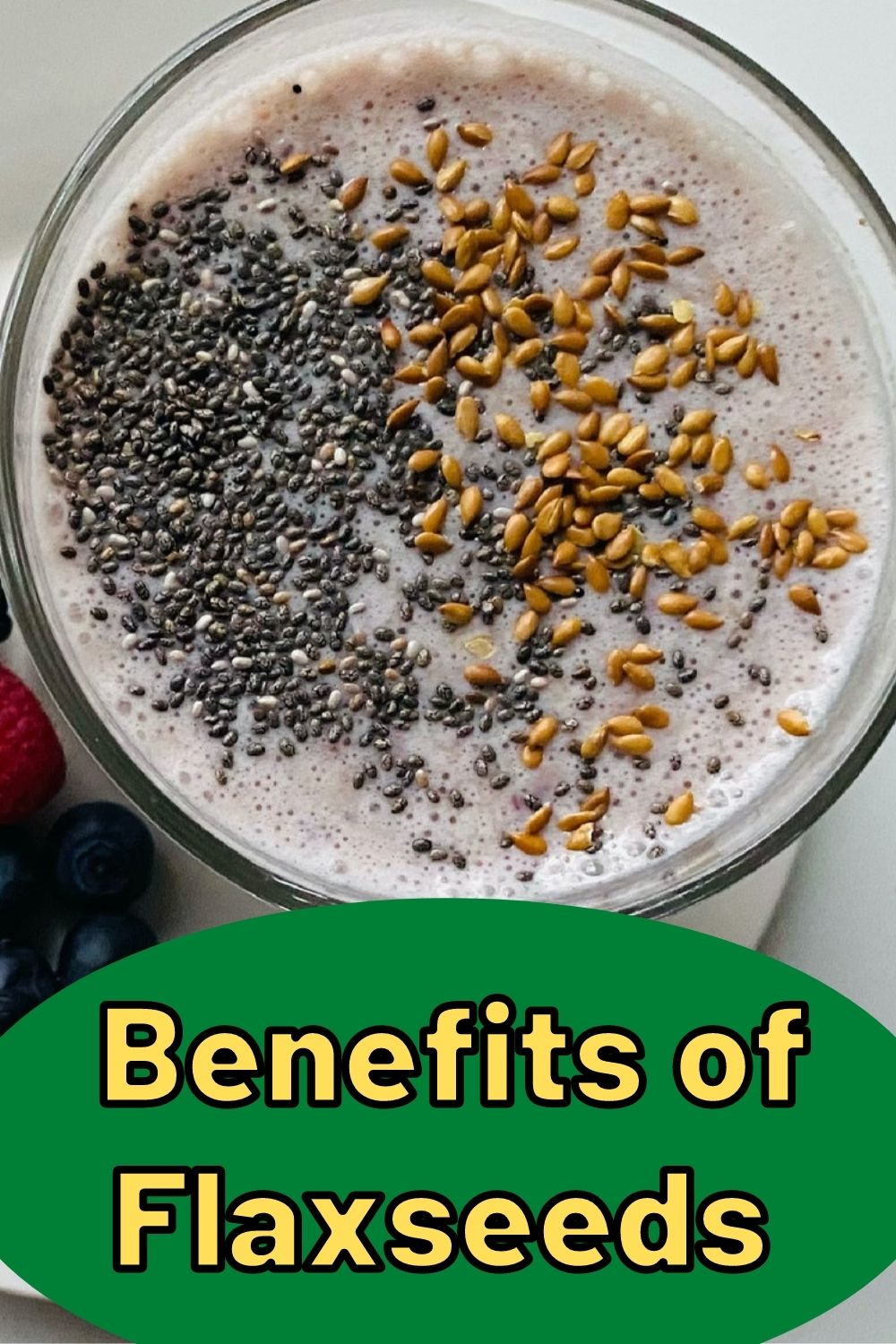Flaxseeds are a trendy health food supplement that can be added to a variety of foods, like smoothies, pancakes, and oatmeal. These tiny black seeds are packed with omega 3 fatty acids and can provide you with a myriad of health benefits.
Flaxseed comes in many different forms, including whole flaxseed, ground flaxseed, flaxseed powder, and flaxseed oil. To get ground flaxseed, you can put whole flaxseeds into a coffee grinder and blend until you have a fine, sand-like mixture. It's easy to bake ground flaxseed into most dessert recipes, and adding flaxseed to baked goods can help you add more dietary fiber and nutrients to your diet without giving up sweet treats.
Micronutrients
Flaxseed contains many different micronutrients, which may help improve overall health. To reduce your risk of heart disease, high blood pressure, and high cholesterol, make sure to consume flaxseeds in the portion recommended.
B Vitamins
B6
Flaxseed contains B-complex groups. These groups consist of riboflavin, niacin, thiamine, pantothenic acid, and folates.
The body uses vitamin B6 to elevate mood. Studies have found that this vitamin helps prevent irritability, depression, mood swings, and anxiety, making it good for people with PMS, or premenopausal women who may experience decreased or fluctuating levels of serotonin.
One tablespoon of ground flaxseed only contains two percent of your recommended B6 intake, so it's important to supplement your diet with other forms of B6.
B1

Vitamin B1, also known as thiamine, helps turn carbohydrates and glucose into energy. B1 has been found to help with high blood pressure, blood sugar, and diabetes.
People who lack vitamin B1 experience irritability, abdominal pain, and depression. Flaxseed is a great source of thiamine and can be used to hit your daily B1 requirements.
Manganese

Another mineral found in flaxseed is manganese. Some of the benefits of manganese are as follows:
Bone Health
Manganese is great for bone health and supports bone density. This is important for postmenopausal women, who are more likely to suffer a bone break due to osteoporosis. Manganese may also help with inflammation, and is particularly effective in reducing pain in those people are suffering from arthritis.
Blood Sugar
More research needs to be done to confirm whether manganese can help regulate blood sugar levels. However, research does show that people with diabetes have lower manganese levels, and researchers believe there may be a correlation.
PMS
Manganese may be able to help with PMS symptoms when combined with calcium.
A study has shown that people who have low levels of manganese experience poor moods and increased pain, even when provided with high calcium supplements. However, when manganese and calcium are combined, the symptoms are less severe. Researchers have yet to find out if this is due to just manganese or the combination of manganese and calcium.
Thyroid Health
Manganese plays an important part in the production of thyroxine, a hormone that is vital for the regulation of the thyroid. The thyroid is responsible for appetite, weight, metabolism, and organ health. Thyroid conditions, such as hypothyroidism and hyperthyroidism, can affect how the body metabolizes food as well as how well the appetite is controlled.
Copper
Copper is essential for the production of red blood cells, regulating the heart rate, maintaining healthy blood pressure, encouraging the formation of collagen, and promoting absorption of iron. Copper is also effective in preventing anemia and osteoporosis.
It's worth knowing that, while rare, it is possible to have too much copper in the body. This may cause symptoms such as vomiting, stomach pain, nausea, weakness, and a metallic taste in the mouth.
Magnesium

Magnesium, another beneficial mineral in flaxseed, is crucial in the formation of proteins from amino acids, and the repair and creation of DNA. Copper is also important in maintaining muscular health, converting food into energy, and regulating neurotransmitters.
Magnesium helps with sports performance. This mineral helps get rid of lactate in the muscles, while delivering sugar supplies for energy.
Additionally, magnesium is effective in helping boost mood. Researchers have found that low levels of magnesium may be linked to depression and other mental illnesses. While more research is needed to confirm if this is due to low magnesium quantities in food, it's thought that supplementing your diet with magnesium may help with depression. A serving of flaxseed provides a great source of magnesium.
Magnesium can also help lower blood pressure without having an effect on people who have normal blood pressure. Some studies have even found that magnesium can prevent insulin resistance, which causes type 2 diabetes. Type 2 diabetes occurs when the muscles and the liver aren't able to absorb sugar in the bloodstream.
Phosphorus
Phosphorus is important for bone health and use of energy in the body. This mineral, which can be found in flaxseed, is also needed to help the body filter waste from the kidneys, balance vitamins and minerals, regulate heart rate, and reduce muscle soreness after exercise.
People with low phosphorus may experience fatigue, pain in the joints, increased irritability, and reduced appetite or loss of appetite.
Flaxseed and Heart Health

Flaxseed has many heart health benefits that can be obtained when added to your meals. Swapping out vegetable oil for flaxseed oil or adding ground flaxseed to a bowl of oats is a great way to add this superfood to your diet.
Omega 3s
Flaxseed is a natural source of omega 3 fatty acids. Omega 3s help lower blood pressure, slow the development of plaque in the arteries, prevent blood clots, and help with cholesterol levels. Omega 3s reduce inflammation in the arteries, which may lower your risk for heart disease.
Omega 3 fatty acid may also help with metabolic syndrome. Metabolic syndrome is a combination of high blood pressure, diabetes, and obesity.
Additionally, omega 3s may help prevent cancer. Some studies have linked omega 3 with reduced cancer risk in women and men. The studies primarily focused on breast cancer and prostate cancer.
Bone and joint health are also positively affected by the consumption of omega3s. Omega 3s boost the amount of calcium that is absorbed by the bones. This helps prevent the risk of osteoporosis and arthritis as we age.
Blood Cholesterol
The fatty acids found in flaxseed can help with high cholesterol. Studies have shown that flaxseed and flaxseed oil help lower cholesterol, while providing the body with good HDL cholesterol.
High levels of LDL cholesterol make you more at risk of heart disease and heart attack, so reducing cholesterol where possible will help you maintain your overall health.

Flaxseed and Digestive Health

Flaxseed may have the ability to improve digestive health. Ground flaxseeds are a good source of fiber, which helps bulk your stool and regulate bowel movements. Early research suggests that flaxseed can even aid in weight loss.
Insoluble fiber found in flaxseed speeds up the movement of foods through the digestive tract, and adds bulk to the stool. This prevents constipation and acts as a natural laxative.
Flaxseed also contains soluble fiber. Soluble fiber turns into a gel-like substance that adds bulk to the stool. This type of fiber is also effective in lowering glucose and cholesterol.
Soluble fiber is a good tool for weight loss as it helps reduce the body's ability to turn food into fat. It also increases the healthy bacteria in the gut, reducing inflammation and helping the digestive process.
Finally, insoluble fiber promotes good gut health, and reduces the risk of conditions such as hemorrhoids and diabetes.
Flaxseed And Skin Health
Flaxseed may benefit skin health. The antioxidants found in flaxseed can help prevent wrinkles.
Lignans, polyphenols that are found in plant foods, can help with skin elasticity and prevent skin from sagging with age. Fatty acids found in flaxseed help with moisture levels in the skin and hair. This is especially helpful in the winter months, when skin and hair is drier due to the weather conditions and the use of indoor heating.
How to Add Flaxseed to The Diet

There are many potential health benefits when adding flaxseed into a balanced diet. Some studies have shown that flaxseed reduces the risk of prostate cancer and may help people at risk of developing breast cancer. Additionally, flaxseed helps reduce the risk of heart disease, and can be beneficial to people experiencing PMS, osteoporosis, and metabolic syndrome.
With so many nutritional benefits, you should certainly consider adding flaxseed to your diet - but it's important to consume it in the correct quantities. Even a small portion of flaxseed is high in calories. You'll find, however, that it's difficult to eat too many flaxseeds, as they're quite dense.
A typical serving size of flaxseed is one tablespoon. If you have whole flaxseed, you can use a coffee grinder or food processer to turn it into ground flaxseed or flaxseed meal.
Flaxseed has a nutty flavor, which makes it a great addition to foods such as oatmeal, pancakes, and baked goods, as it doesn't overpower the foods. You may not even notice its addition.
You can even use flaxseed as an egg substitute in some dishes, which is particularly beneficial if you're looking to lower the total cholesterol in your diet, or you prefer to use vegan alternatives. To replace eggs with flaxseed, mix one tablespoon of ground flaxseed with three tablespoons of water. Then add to any recipe that calls for eggs.
Healthy foods can be cooked in flax oil for a heart-healthy alternative to canola oil. When switching oils, it's important to remember that flax oil is still high in fat, and should be used in moderation when cooking.
Takeaway
Flaxseeds and flaxseed powder have a whole host of health benefits to make the most of. However, it's important to add these seeds slowly to your diet because of their high fiber content. One tablespoon a day is more than enough for you to benefit from the nutritional value of these seeds.

